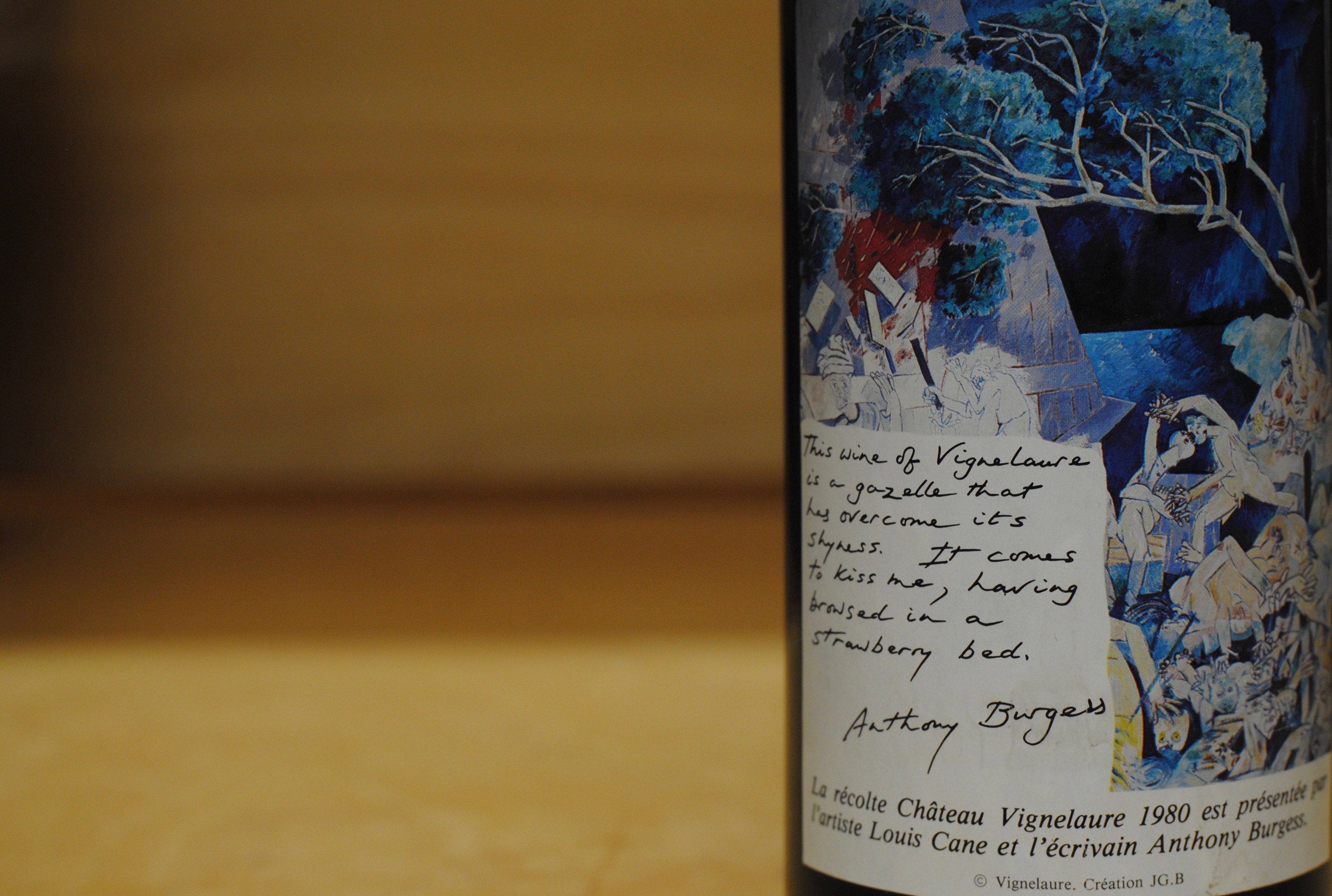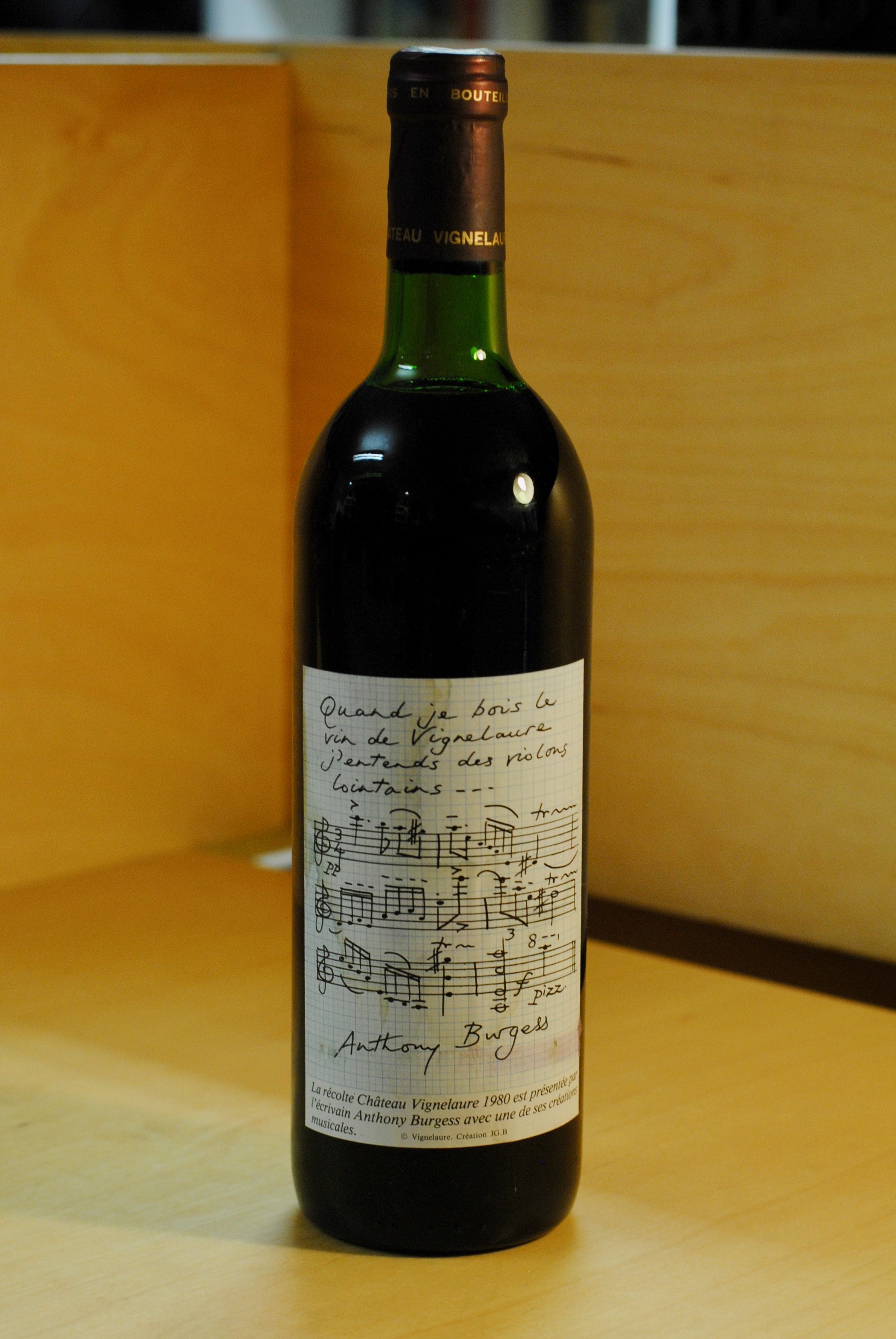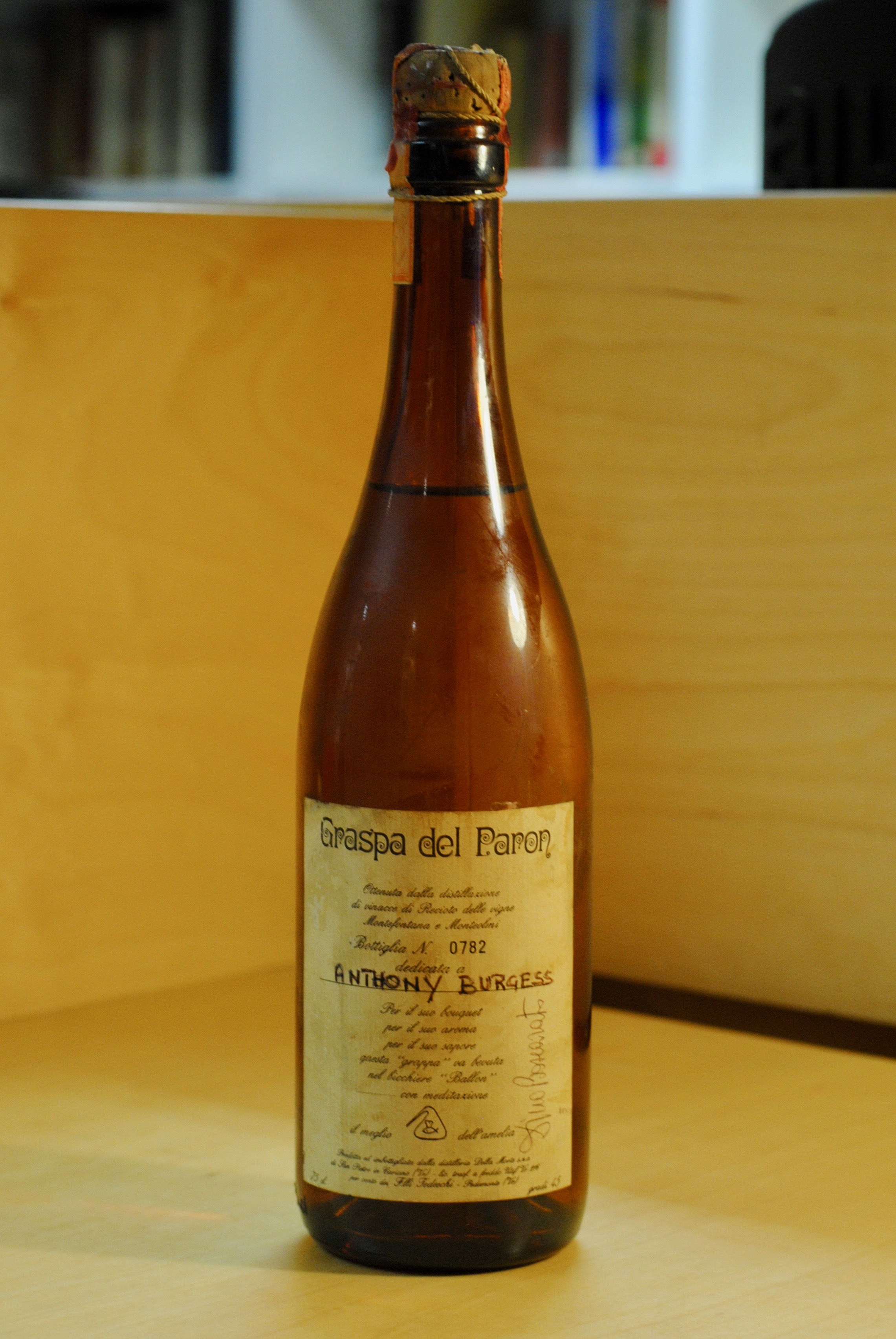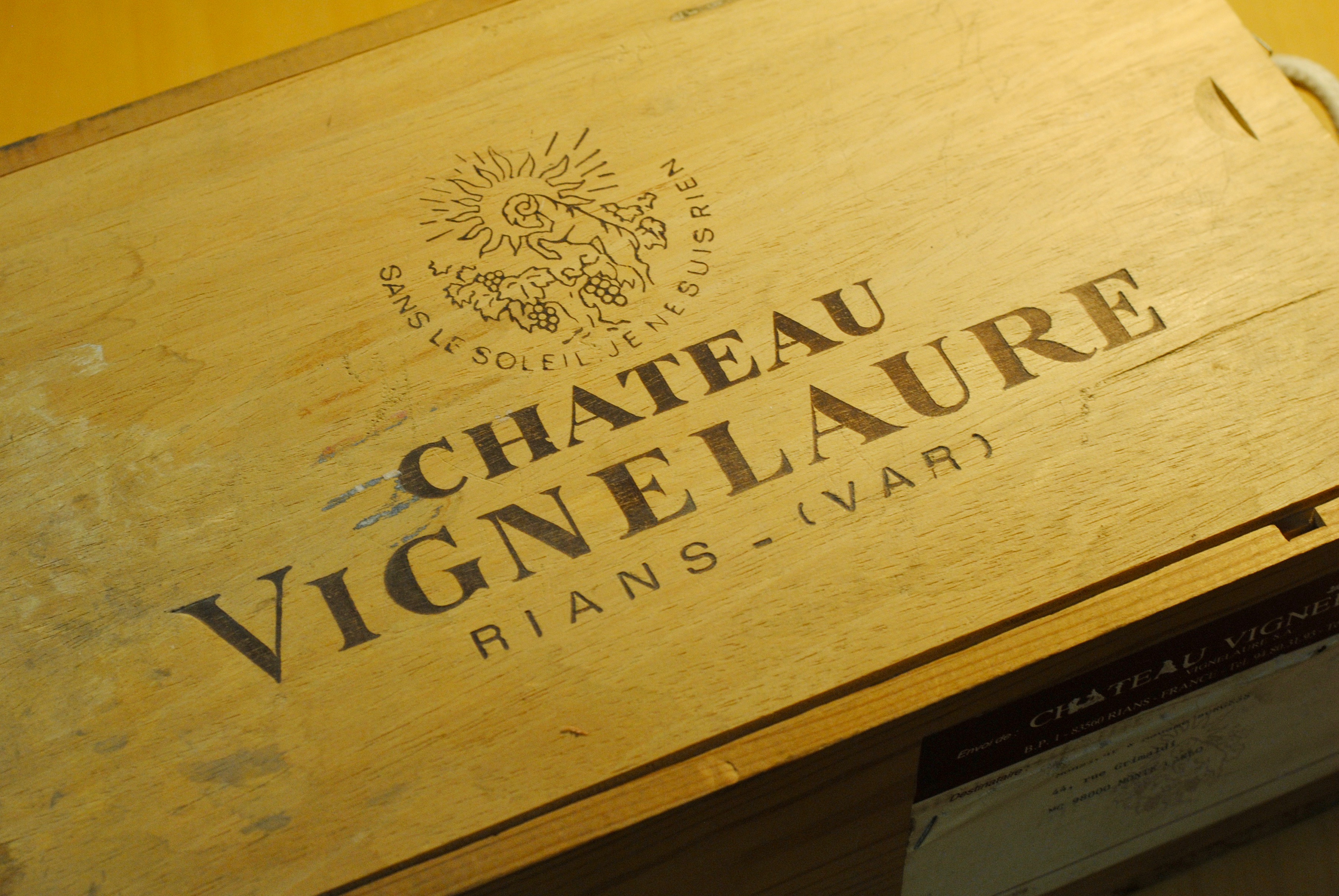Object of the Week: Burgess’s Wine
-
Graham Foster
- 29th August 2017
-
category
- Object of the Week

It is unusual for a literary archive to contain such a wide range of items as those which appear in the Burgess Foundation’s collection. One of the most surprising discoveries is that there are several bottles of wine stored among the manuscript pages, photographs and books. More surprising still is that the wines have remained undrunk.
The bottles which survive have a special significance. In 1980 the vineyard Château Vignelaure asked Anthony Burgess to design a label for a limited edition of that year’s vintage. He created two labels, one in collaboration with artist Louis Cane, on which Burgess wrote a translation of a popular song in praise of drinking: ‘This wine of the Vignelaure is a gazelle that has overcome its shyness. It comes to kiss me, having browsed in a strawberry bed.’ On the other label, Burgess wrote out some bars of music, along with the phrase: ‘Quand je bois le vin de Vignelaure j’entends des violins lointains…’ or ‘When I drink the wine of the Vignelaure I hear distant violins…’

This arrangement came about through Burgess’s connection with the Var region of France, where Château Vignelaure is located and where, in the town of Callian, Burgess owned a house in which he wrote novels such as Beard’s Roman Women (1976) and The Pianoplayers (1986). He was not the only writer to work with this vineyard. The American novelist William Styron also designed a similar label, and Burgess’s collection includes two magnums of the Styron wine.
The archive at the Burgess Foundation also contains an unopened bottle of grappa which has been dedicated to Burgess from a distillery in San Pietro in Cariano, Verona. It is of an unknown vintage. Burgess disliked grappa, and he wrote in a 1990 article that it ‘smells of old wet dog’.

Drinking was at the centre of Burgess’s social life throughout the period of his first marriage, and alcohol appears in many of his novels, from Nabby Adam’s alcoholism in Time for a Tiger (1956), and the players christening the newly-built Globe Theatre in Nothing Like the Sun (1964), to the bibulousness of characters such as Greg Gregson in Beard’s Roman Women, who drinks endless gins flavoured with Angostura bitters, and Billy Henshaw, a great lover of Bass beer, in The Pianoplayers (1986).
Burgess, whose house in Chiswick had a white leather bar in the living room, had a difficult relationship with alcohol. At the height of his writing career in the 1960s, he received a weekly home delivery of 12 bottles of gin, and he also spent a large amount on wine, according to the stubs of his chequebooks. His habit of drinking gin rather than beer or cider began during his time in Malaya and Brunei (1954-1959) where, he writes, ‘I drank a bottle of gin a day, mistakenly believing that the tropical heat sweated it all out.’

After his first wife, Lynne, died from cirrhosis of the liver in 1968, he moderated his drinking, although he remained an occasional social drinker. Of his inability to renounce alcohol completely, he writes: ‘Drink is an aspect of the culture of my ancestors and it will never totally dry up in myself. Drink is not only worth doing; it is worth thinking about.’ In a 1977 article for the Sunday Times, he was invited to name his ‘Seven Wonders of the World’ and included champagne among them.
After Burgess moved to Monaco in 1975, he maintained an extensive wine cellar, the inventory of which accompanies the remaining bottles in the archive. It shows that, by 1984, he kept never less than a hundred bottles of wine in stock, including 34 bottles of the 1980 Vignelaure (plus one of a 1978 vintage), 46 bottles of a 1978 Cote du Rhone, ten bottles of Chablis, and nine bottles of Pinot Noir d’Alsace.
Burgess’s writing about alcohol is part of a longer tradition in literature, which includes novelists such as Henry Fielding, Malcolm Lowry and Kingsley Amis. As Burgess writes: ‘Our history is soaked in drink and so is our literature. If the French seem willing to ignore Rabelais, whose Gargantua is born shouting “A boire”, we are not ready to forget Falstaff.’ As Greg Gregson says in Beard’s Roman Women: ‘Selamat minum!’



